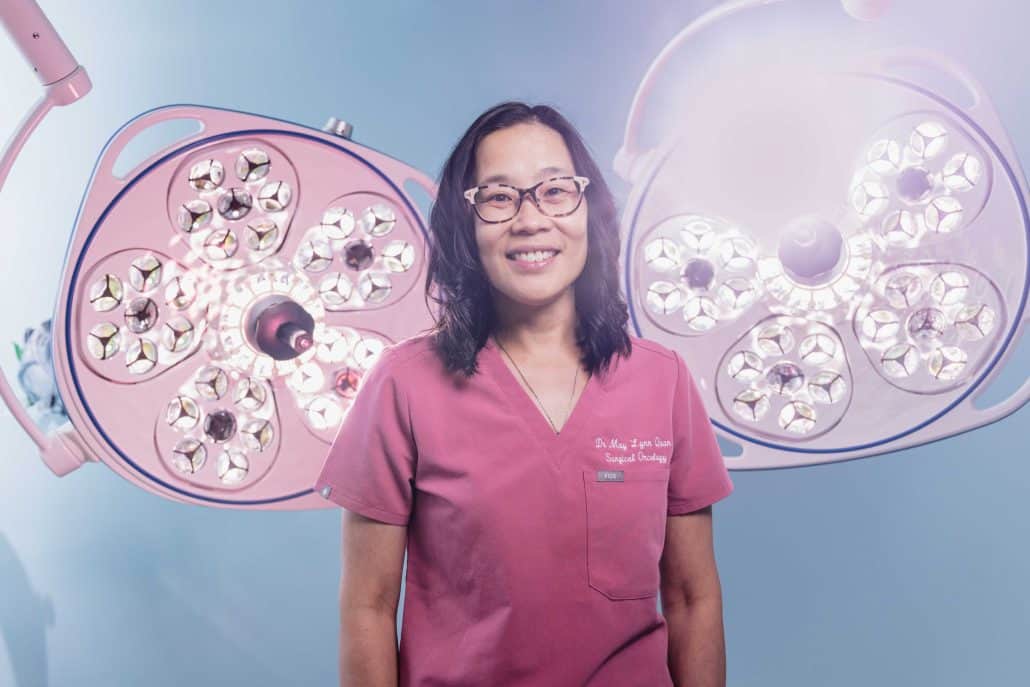The Sentimag Localization Program in Calgary replaces traditional hook wire markers used for breast cancer surgery.

Imagine preparing for breast cancer surgery while enduring the discomfort and stress of traveling with a wire protruding from your breast or undergoing a painful injection to map your lymph nodes. For many patients, this has been the reality.
For decades, the standard of care has involved inserting hook wires on the day of surgery to mark small breast tumors. These wires must remain in place while patients travel to their surgical location, carrying the risk of accidental dislodgement, which can lead to surgical delays. While radioactive seed localization offers some improvements, it is not widely accessible and requires special safety protocols.
Additionally, almost all women need a painful radiotracer injection to map affected lymph nodes. These procedures add stress, pain and logistical challenges to an already emotional journey.
Recognizing these challenges, Dr. May Lynn Quan, medical director of the Calgary Breast Health Program and scientific director of SPHERE (Strategies for Precision Health in Breast Cancer), sought to improve the quality of care for patients needing breast cancer surgery. With funding from Calgary Health Foundation and the Alberta Cancer Foundation, Quan launched the Sentimag Localization Program, a three-year pilot project launched in Calgary in 2024, that replaces traditional hook wires with tiny magnetic markers (Magseeds). These markers, about the size of a grain of rice, are placed at tumour sites, and surgeons can precisely locate them with magnetic tools before surgery.
The radiotracer used for lymph node mapping is now injected during surgery under anesthesia, significantly reducing any pain or discomfort felt by the patient. Additionally, the Sentimag Localization Program offers greater flexibility for scheduling surgical procedures as the seeds can be inserted in the breast at any time before surgery, including during an initial biopsy, unlike hook wires, which must be placed on the day of surgery.
“By taking advantage of opportunities to use devices like [Magseed], we can enhance the patient experience and remove strain from the healthcare system,” says Quan. She hopes the pilot project will demonstrate the benefits of magnetic markers and pave the way for them to become the standard of care for people diagnosed with breast cancer across Alberta.

